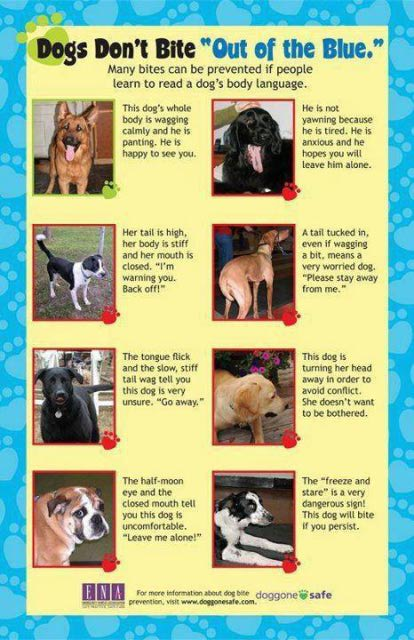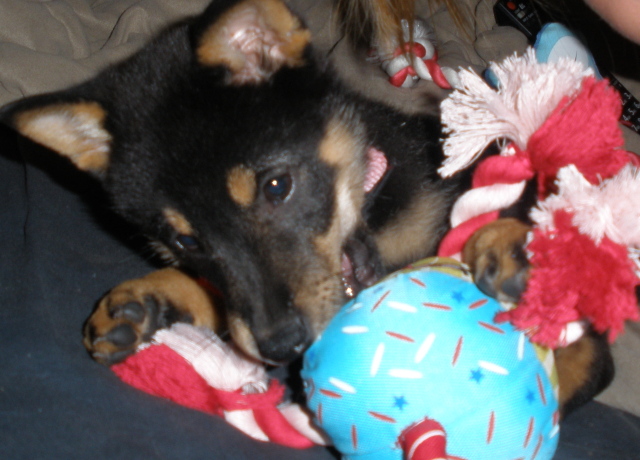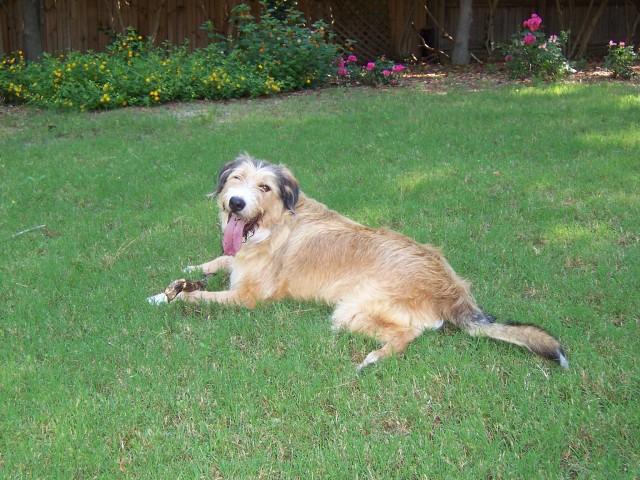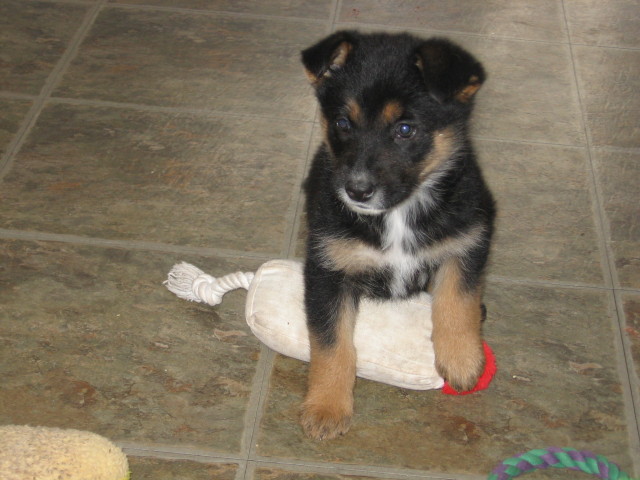QuestionPlease help. I have an English pointer and a German Shepherd. The EP was horribly abused and starved, i have had her for a year and although she is still skittish she has come a long way.
My Shepherd is six and has been though ob training and had always been a wonderful dog.
In the last month these two have gotten in to three fights (never happened before)and the EP has started growling and snarling at people when they come to the house . This is brand new and I don't know what to do. I don't want to put her down, but I am afraid of her hurting a person or continued dog fights. please help
AnswerObviously something is going seriously wrong in the EP's rehabilitation. I can't see anything from here. No one can help you in a text box. You need immediate in person evaluation by a certified applied animal behaviorist. Dog to dog aggression can be a predictor of dog to human aggression. Snarling at visitors is usually a fear response and in this case it is most likely being acquired as the result of (perhaps a single) incident. How you manage the dog during such an episode may greatly contribute to it (of course unintentionally!) A professional can observe the dog's demeanor as s/he enters and immediately (if they're good) determine cause. An overall temperament evaluation has to be done of both dogs and they need to be closely observed with one another to interpret body language (dogs communicate constantly during the waking state, to one another and to us).
If physical injury is occurring during the episodes where the dogs demonstrate aggression toward one another, they can not be left alone together and may have to be separated until a professional can advise you as to the best course of treatment. It's not uncommon for two bitches to begin to fight and it can escalate to 'fight on sight' with enormous injury (and sometimes death), including injury to a human who attempts to intervene. It's possible that the EP is sufficiently habituated to your household as to be attempting a statement of rank toward your GSD, or the GSD herself is attempting this. Former OB work doesn't count: the GSD needs a job, needs to be encouraged to use cognition and problem solving, even simple 'games' like 'find it' during the course of daily life can encourage this. The EP is a high enery breed that requires a great deal of exercise and is also quite intelligent and needs interaction which stimulates thinking and problem solving. Not every dog can be left to its own devices, some are more work than others. This is determined by personal evaluation.
It IS possible to rehabilitate this situation. Front door aggression can be extinguished and problems between dogs in a household can be managed in such a way as to establish clear "rank" between the dogs AND psychological "dominance" of the human(s) in the household. But doing it from a text box is not only impossible, it's downright dangerous. Find a behaviorist (NOT a dog trainer) at one of the following sites:
http://certifiedanimalbehaviorist.com/page6.html
http://www.animalbehavior.org/ABSAppliedBehavior/caab-directory
http://www.arkanimals.com/ark/dg_expert_referrals.html
MEANWHILE: learn to read your dogs' body language, very important to ward off imminent problems. You can do this by reading/watching Turid Rugaas' "On Talking Terms with Dogs: Calming Signals" available here:
http://www.dogwise.com/itemdetails.cfm?ID=DTB527
Often a rescued dog from abusive background has not been socialized to other dogs, misinterprets communication from other dogs, and reacts fearfully or in order to guard resources (food, treats, toys, even people). Observing body language closely can ward off a problem if you are fast enough AND both dogs are 100% reliably going to react to cues you've created for behaviors trained using positive reinforcement only. This is a lot of work but the GSD should be enormously bidable and will learn quickly; the EP might require more time, given her emotional condition. This is long term planning obviously. The EP should see a veterinarian immediately to rule out physiological reasons for her apparent sudden aggression although it may really have been developing slowly all along (and you were unable to perceive it).
Dr. Ian Dunbar has a video which discusses the ethology of aggression, NOT how to manage it, since this is a highly case sensitive problem requiring hands on. You can find it here:
http://www.dogwise.com/ItemDetails.cfm?ID=DTB1067
Since your EP is showing front door ("stranger") aggression, she cannot be allowed to greet anyone at the front door until the behaviorist has had an opportunity to address the problem. Because the two dogs are mixing it up, the GSD should be made to 'sit' and 'wait' when greeting visitors, in order to maintain the psychological perspective of 'lower rank' (only 'high rank' is allowed to freely meet/greet). Both dogs should probably be on Nothing In Life Is Free but first temperament has to be absolutely known; promoting the wrong dog over the other will precipitate a larger problem between them.
You've done a loving thing by taking in this EP. What's occurring is not your fault; there is a good chance the situation can be successfully managed. Should these dogs engage in a serious physical altercation, DO NOT GET IN THE MIDDLE. Bang pots, throw a bucket of water onto them, you can even purchase a canned air horn. A sudden, startling noise can interrupt a serious dog fight long enough for the dogs to be separated (using their hind legs to drag the dogs away from one another). If these fights have NOT produced injury requiring a veterinarian, re-evaluate your perception of them. Dogs often 'fight' with great noise and spit flying and it's frightening to watch but the hallmark of serious fighting is serious injury. If no injury is being done, a simple interruption (clap of hands, blowing a whistle) and immediate redirection to a trained behavior both dogs can offer and be rewarded/praised for might do the trick in the short term. DO NOT yell at, discipline, scold or punish either dog in any way, since this may inadvertently reward the "wrong" dog and exacerbate the initiator's reason for launching the fight.
To learn a little more about aggression:
http://www.k9aggression.com/Aggression-Treatment/prognosis.html

 Is this aggression, dominance, or play?
QuestionQUESTION: I have a question regarding doggy beh
Is this aggression, dominance, or play?
QuestionQUESTION: I have a question regarding doggy beh
 My Shiba Inu
Question
Lola
I bought a registered Shiba Inu puppy fro
My Shiba Inu
Question
Lola
I bought a registered Shiba Inu puppy fro
 Nightmares?
Question
Beethoven
Hi Melissa, Ive had my very h
Nightmares?
Question
Beethoven
Hi Melissa, Ive had my very h
 anxious dog
Question
Louie
Hi, We adopted a 2 year old male A
anxious dog
Question
Louie
Hi, We adopted a 2 year old male A
 puppy problems
QuestionQUESTION: I am the proud owner of 2 german shep
puppy problems
QuestionQUESTION: I am the proud owner of 2 german shep